Cancer Research
Funding Cancer Research Science to help Kids with Cancer
Finding a cure and better ways to treat childhood cancer is of the utmost importance, and to this end we have been involved in funding research into childhood cancer since 1999.
Sydney Children’s Hospital Cancer Research Unit built totally with $1.5M in funds provided by Kids with Cancer
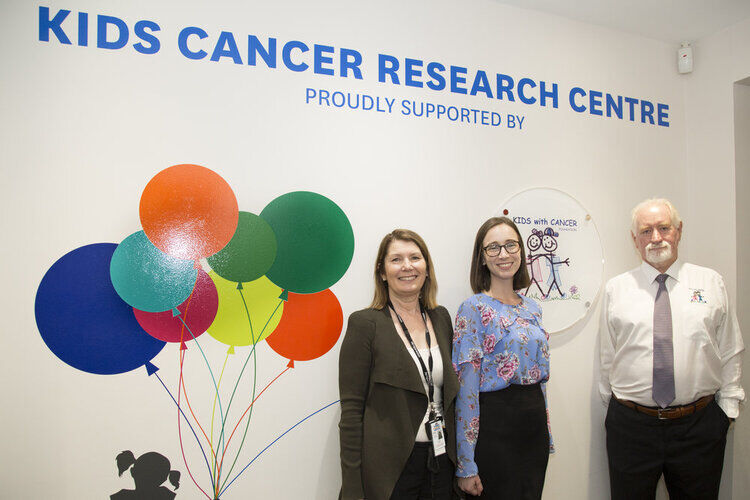
World first research into Relapsed Ependymoma
The Deflexifol Clinical Trial for Ependymoma proudly supported by Kids with Cancer. In 2022 we were delighted to be approached by Professor David Ziegler at Sydney Children’s Hospital, Randwick, to provide $1,262,457 over 5 years as a principal funder of a world first clinical trial into refractory or recurrent paediatric central nervous system tumours.
Watch Dr Ziegler video

Brain tumours are the leading cause of cancer death in children and adolescents in Australia. Paediatric Ependymoma is the third most common childhood brain tumour, yet standard therapies (surgery and radiation therapy) have remained largely unchanged for decades.
Paediatric Ependymoma is a cancerous brain tumour doctors regularly see in kids. There are only two treatments used for Ependymoma. The first is surgery,
where surgeons remove all the tumour, and the second is radiation therapy, which is a very intense treatment but works for the majority of kids. About 70% of kids will be cured with the combination of these two treatments.
However, if neither of those are successful, doctors really have no other effective treatments. And if the cancer comes back after kids have had radiation therapy, we know at that point that it’s essentially incurable.
“That’s why we really need more research and trials to come up with new and better treatments”
Our funding (together with scientists, clinicians, and experts from around Australia) will support the new clinical trial which is getting ready to roll out around the country to help kids with this devastating form of cancer.
This trial is testing a new cutting-edge therapy – it’s hoped that with the new formulation of a more effective and less toxic drug doctors may facilitate a world first treatment. The biggest transformation initially will be hope, where previously there was very little. It will mean that there is something to offer kids who would otherwise have no other options.
This trial will be opening around Australia in every children’s cancer centre in the
country and will be made available to every child in Australia who needs it. But more than that – we want to make sure this has a global impact! We need to make sure every child is cured, no child is left behind, and that we have the best possible clinical outcomes.
We can only do this by continuing to raise the bar and continuing to fund research to find new and better treatments – and that is exactly what we are doing. We are delighted to provide the funding for this critical world first clinical trial. Our hope in doing so, is to see ependymoma become an unremarkable event for kids with cancer and their families.
Professor David Ziegler
A/Prof David Ziegler is a Senior Staff Specialist in the Kids Cancer Centre at Sydney Children’s Hospital. Has expertise in neuro-oncology and early phase clinical trials. David was a Fulbright Scholar at the Dana Farber Cancer Institute,...
Learn more...Professor David Ziegler
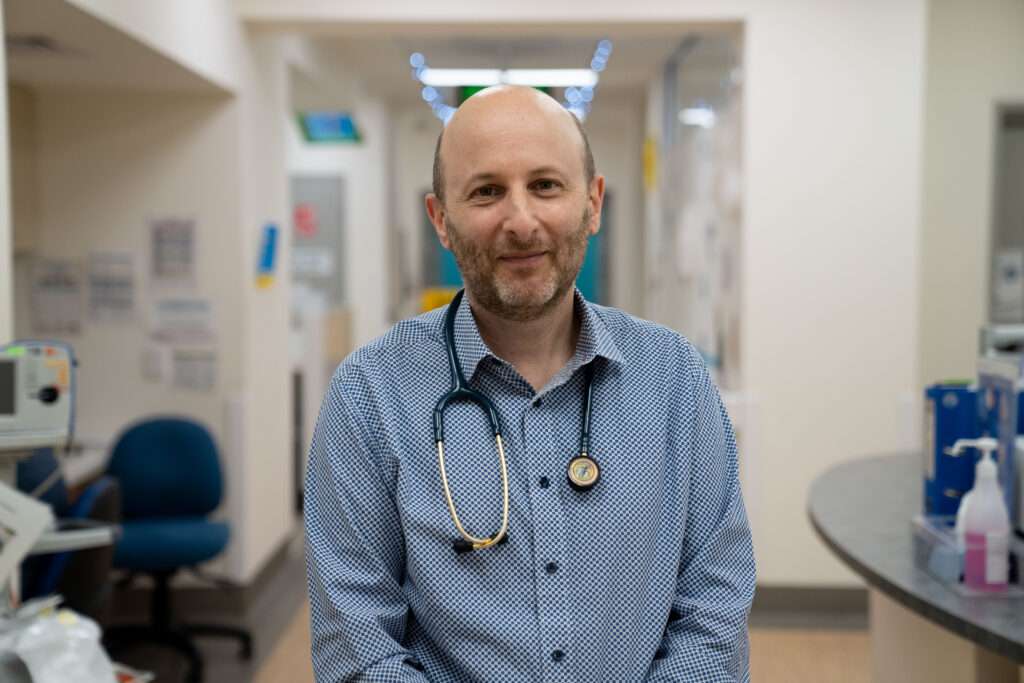
A/Prof David Ziegler is a Senior Staff Specialist in the Kids Cancer Centre at Sydney Children’s Hospital. Has expertise in neuro-oncology and early phase clinical trials. David was a Fulbright Scholar at the Dana Farber Cancer Institute, Harvard Medical School and Children’s Hospital Boston. He is a Conjoint Associate Professor at the University of New South Wales.
Joanne Chuah - National Study Coordinator
Joanne has been in the clinical research industry for over 10 years. During this time, Joanne had the responsibility of not only coordinating multiple international clinical trials at a major paediatric cancer centre, but also becoming the...
Learn more...Joanne Chuah - National Study Coordinator
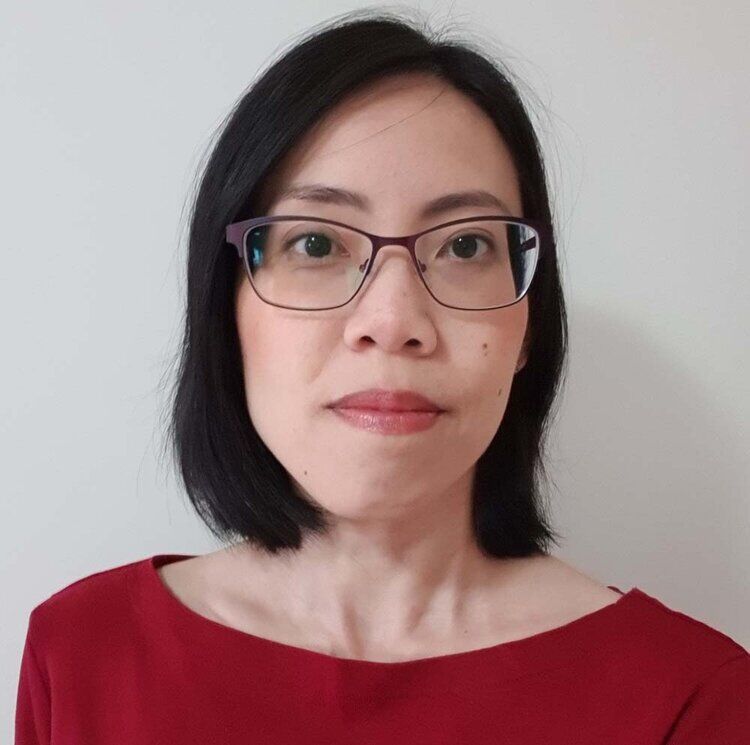
Joanne has been in the clinical research industry for over 10 years. During this time, Joanne had the responsibility of not only coordinating multiple international clinical trials at a major paediatric cancer centre, but also becoming the national project manager and liaison for an international clinical trial. The type of cancer trials Joanne worked on include (but not limited to) leukaemia and bone marrow transplant.
Given how valuable clinical trials are in providing children the best chance of beating cancer, I am very excited to join the Sydney Children’s Hospital’s KOALA team as a National Study Coordinator. This is my opportunity to contribute to the development and management of new early phase clinical trials. It is a privilege to work alongside researchers who are dedicated to improve the outcome of childhood cancers by bringing together scientifically safe and effective medicine to children across Australia and New Zealand.
Gene Therapy Dr Geoff McCowage received the 2015 Premier's Award for Outstanding Cancer Research
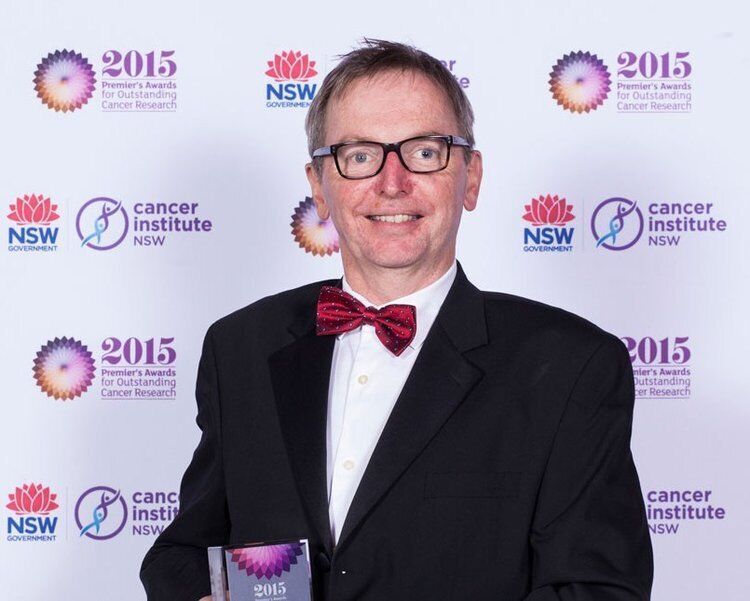
We congratulate Dr McCowage on his wonderful achievements.
As a start-up in 1999 Kids with Cancer Foundation provided $150,000 to help start a Gene Therapy project supporting the work of Dr McCowage and Peter Gunning at The Children’s Hospital at Westmead.
Dr McCowage has been a paediatric oncologist at the Sydney Children’s Hospital Network (SCHN) Westmead since 1996. He has a particular clinical interest in neuro-oncology and sarcomas of bone and soft tissue. His current research involves gene transfer with haematopoietic stem cells, focusing on the development of clinical gene therapy trials. Dr McCowage is SCHN Westmead’s Principal Investigator for clinical trials of the international Children’s Oncology Group, and is also involved in other clinical trials sponsored by industry and other consortia.
“Gene Therapy provides hope as a viable and innovative approach to the treatment of paediatric brain tumours and alleviation of treatment side effects. The Children’s Cancer Gene Therapy team started a Phase I study in June 2012 for the treatment of paediatric brain tumours using a combined gene therapy/pharmacological approach. The approach involves gene modification of haematopoietic stem cells, so that the cells produce a DNA repair protein and become resistant to the harmful effects of methylating chemotherapy. This trial is a world-first study demonstrating the safety and feasibility of infusing gene-modified haematopoietic stem cells in children.”
(Kids with Cancer provided $500,000 in 2003 to help construct the ‘Australian Stem Cell Facility’/’Sydney Cord and Marrow Transplant Facility’, for The Kids Cancer Centre at Sydney Children’s Hospital).
1. Gene Therapy Project – Protection of bone marrow stem cells from chemotherapy toxicity
Most of the side effects of cancer chemotherapy occur because the chemotherapy drugs damage the bone marrow. In this project we aim to protect the bone marrow using a gene therapy approach. We are developing techniques to introduce into the bone marrow stem cells a gene named methylguanine methyl transferase. The modified stem cells will then create a chemical, which protects them from the chemotherapy drugs. The modified stem cells would then be given back to the patient as a bone marrow transplant, and hopefully subsequent chemotherapy would have less toxicity since the bone marrow would be protected from the damage which usually occurs.
So far we have developed a special non-toxic virus, called a vector, which can carry the gene into the stem cells. We have developed techniques for purifying stem cells from bone marrow and strategies for introducing the virus to the stem cells. We aim now to develop these techniques further to the point of conducting a clinical trial. This is a new and rapidly developing area of translational research – there are very few gene therapy protocols being trialed in Australia – and we hope that by developing this protocol in collaboration with the Gene Therapy Research Unit at The Children’s Hospital, that we will be successful in initiating a trial at this hospital. This is a long-term and ambitious project which involves a full-time research scientist under the direction of Dr Geoffrey McCowage and Professor Peter Gunning.
2. Leukemia Project – The role of the novel D52 gene family in human cancer
Dr Jennifer Byrne, a Research Group Leader within the ORU, has identified a new family of genes, called the D52 family, which are involved in human cancer. Current evidence suggests that these genes may play roles in controlling cell multiplication. Members of this family can be active in leukemia cells, and we wish to examine whether their activity is associated with leukemia. Such associations could indicate that these genes might find future use in leukemia diagnosis. We are also investigating, in a parallel project within the laboratory; whether inducing too much D52 gene activity in a particular tissue can result in this tissue developing cancer. It is envisaged that this project would be of l-year duration and require the expertise of a full-time Clinical Research Fellow
Our Cancer Research Impact
Kids with Cancer Foundation’s (KWCF) impact on our Hospital (Sydney Children’s) has been a significant one throughout the life of the partnership, contributing in excess of $7.7Million over 15 years in support of our Kids Cancer Centre.
Research has been a key feature of this support, with over $2.8milllion supporting vital research projects within our Kids Cancer Centre, helping to find new treatments and cures for childhood cancer which has helped us to work towards our goal of 100 survival for all children with cancer.
The funding from KWCF provides the Cancer Centre with the opportunity to employ much needed research staff essential for the management and coordination of a wide range of clinical trials. Access to such clinical trials allows our patients to receive state of the art medical treatment and provide access to innovative and effective new treatment regimes.
In order to facilitate this access to such a broad range of clinical trials for children with cancer, the Clinical Trials Team collaborates with several national and international collaborative trial groups and pharmaceutical companies. Two Clinical Research Associates (CRAs), whose salaries are supported by the KWCF funding, coordinate and manage the clinical trials as part of our Clinical Research Program.
Cancer Research Funding
1999 we funded:
- Research Psychologist $50,000.00.
- Clinical Research Associate $21,000.00.
2000:
- Clinical Research Nurse $73,343.00.
- Research Psychologist $50,000.00.
2001:
- $78,151.00. Clinical Research Nurse $63,777.00
- Research Psychologist $62,441.00
- Coordinator of late effects of cancer therapy. $62,592.00
2002:
-
Clinical Research Nurse $73,343.00
2003:
-
Clinical Research Nurse
2004:
- Clinical Research Nurse
2005:
- Behavioural Sciences Researcher $90,000.00
2006:
- Behavioural Sciences Researcher $81,900.00
- Data Manager $47,000.00
2007:
- Behavioural Sciences Researcher $81,900.00
- Data Manager $47,570.00
2008:
- ‘Research Assistant for the clinical trials unit to test new treatment for children with incurable cancer $110,000
- Behavioural Sciences Researcher (part time) $26,160.00, Senior Researcher $46,870, Research Assistant $40,330 and PhD Scholarship $28,340.00 for the ‘Kids with Cancer Foundation Behavioural Sciences Program’
2009:
- Research Assistant for the clinical trials unit to test new treatment for children with incurable cancer $110,000
- Kids with Cancer Foundation Behavioural Sciences Program: Behavioural Sciences Researcher (part time) Senior Researcher, Research Assistant and PhD Scholarship $141,700.00
2010:
- ‘Research Assistant for the ‘Help Cure Incurable Cancers Clinical Trials Unit’ to test new treatment for children with incurable cancer $110,000
- ‘Kids with Cancer Foundation Behavioural Sciences Research Program’: Behavioural Sciences Researcher (part time) Senior Researcher, Research Assistant and PhD Scholarship $131,207.00
2011:
- $300,000 as the initial payment of $1.5million to fund a better Cancer Research Centre providing an increase in clinical, research staff and fellows from 25 to 45 people
- Part time Psychologist (CCC&BD) $50,000
- *Part time Psychologist, Long-Term Follow-Up Clinic for survivors of childhood cancer $60,000
- Kids with Cancer Foundation Behavioural Sciences Research Program’: Behavioural Sciences Researcher (part time) Senior Researcher, Research Assistant and PhD Scholarship $120,372.00
- Research Assistants for the ‘Help Cure Incurable Cancers Clinical Trials Unit’ to test new treatment for children with incurable cancer, two positions $180,000
2012:
- $300,000 as the second payment of $1.5million to fund the ‘Children’s Cancer Research Centre’ providing an increase in clinical, research staff and fellows from 25 to 45 people
- Kids with Cancer Foundation Behavioural Sciences Research Program’: Behavioural Sciences Researcher (part time) Senior Researcher, Research Assistant and PhD Scholarship $120,372.00
- Research Assistants for the ‘Help Cure Incurable Cancers Clinical Trials Unit’ to test new treatment for children with incurable cancer, two positions $142,730
2013:
- $300,000 as the third payment of $1.5million to fund the ‘Children’s Cancer Research Centre providing an increase in clinical, research staff and fellows from 25 to 45 people
- $32,000 Part time Psychologist (CCC&BD)
- $120,372.00 Kids with Cancer Foundation Behavioural Sciences Research Program’: Behavioural Sciences Researcher (part time) Senior Researcher, Research Assistant and PhD Scholarship
-
$142,730 Research Assistants for the ‘Help Cure Incurable Cancers Clinical Trials Unit’ to test new treatment for children with incurable cancer, two positions.
2014:
- $600,000 as the final payment of $1.5million to fund the ‘Children’s Cancer Research Centre’ providing an increase in clinical, research staff and fellows from 25 to 45 people
- $17,703 Long Term Follow Up Program, staffing.
- $120,370.35 Kids with Cancer Foundation Behavioural Sciences Research Program’: Part time Psychologist, 2 Behavioural Sciences Researchers and a Statistician Researcher
-
$142,730 Research Assistants for the ‘Help Cure Incurable Cancers Clinical Trials Unit’ to test new treatment for children with incurable cancer, two positions.
Since 1998 (our first year) we have also funded some similar research projects at The Children’s Hospital at Westmead.
1998:
- Data Manager $30,000.00
1999:
- Data Manager $30,000.00,
- Research Assistant (Gene Therapy) $63,000.00
- Research Assistant (Unit D52 Gene Clinical) $37,500.00
- over $50,000 for project and laboratory consumables as well as work station and software.
2000:
- The Long Term Survivor Clinic $28,750.00.
- Clinical Research Associate-Data Manager $46,680.00.
2004 – 2009:
-
Clinical Research Associate $44,962.00, $51,689.00, $55,187.00, $57,394.00, $57,394.00 & $83,217.00
2011:
-
Clinical Research Associate $86,049
Science is the cure
Australian Stem Cell Facility'/'Sydney Cord and Marrow Transplant Facility
We provided $500,000 in 2003 to help with this construction for the Kids Cancer Centre at Sydney Children’s Hospital.
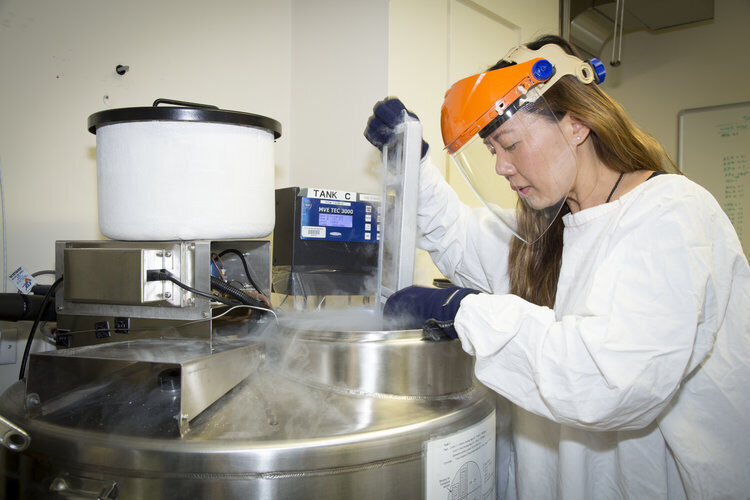


 Hospitals
Hospitals